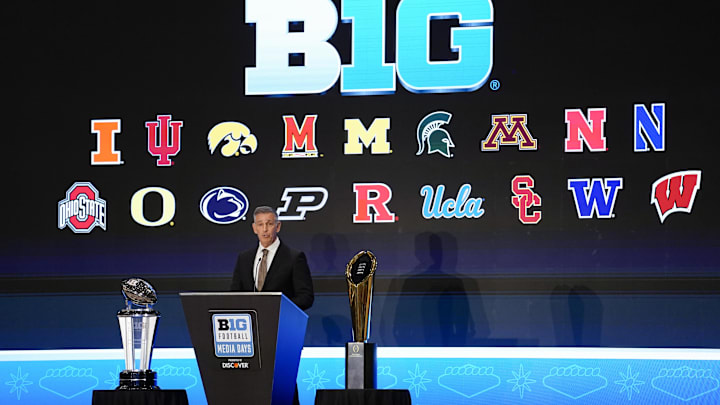The Big Ten and the SEC have already separated themselves from the rest of the country. With the two powerhouse conferences pumping out the highest levels of NIL money and winning the most national titles last season, the Big 12, ACC, and other Division I conferences are rapidly falling behind.
Over the past week, the Big Ten had its annual football Media Days, where conference commissioner Tony Petitti touched on numerous topics, including where exactly the Big Ten was pulling money from to pay its athletes.
Petitti mentioned the fact that the conference hadn't said "no" to finding money from private equity funds, the polar opposite response that the rest of the country has had to PE.
"We’re still thinking about what that could mean in terms of how you would structure something," Petitti said. "We’re doing work trying to figure out, if we were to build something, what’s the best way to build it?"
In contrast, ACC commissioner Jim Phillips made sure that the country knew his conference had decided to go in the opposite direction.
Are the ACC, Big 12, and SEC supportive of private equity?
"We’ve looked at it from a little bit of a distance," Phillips said. "But I think we have to be really serious, and we have to be diligent and thoughtful in any process there. But yeah, it’s like any category: You look at where you may be able to monetize your operation."
Phillips' comments on the ACC backing away from private equity as a source of funds align with what Greg Sankey, the SEC commissioner, and Brett Yormark, the Big 12 commissioner, have said on the matter.
"The board’s not ready right now," Yormark said earlier this year. "And there’s probably lots of reasons for that. There are so many different things going on right now."
Last week, during the SEC Media Days, Sankey admitted that he and the rest of the conference had yet to find a concept for private equity funding that seemed to be genuinely feasible for college athletics.
College sports and their front offices are constantly changing. So, while most Power Conferences aren't ready to tip their hat to private equity right now, don't be surprised if their tunes change in the next few years.
